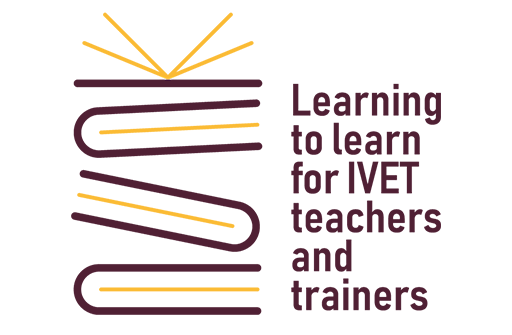About

PROJECT
ERASMUS+ PROGRAMME - KA2 COOPERATION PARTNERSHIP PROJECT
n°2023-1-IT01-KA220-VET-000156675
Learn to Learn competence for IVET trainers/teachers
Introduction
CEDEFOP in its December 2022 briefing note Looking to the Past to Understand the Future: What are the Possible Developments of VET system in Europe?asks how the content and supply of VET responds to the changing needs of countries, the labour market and society. Along with rethinking training standards and curricula, a strong emphasis is placed on the need to overcome barriers between initial and continuing education to create lifelong learning pathways for the development of soft and vocational skills. The note concludes that “How this happens will determine the relevance and overall quality of VET in the coming decades” (CEDEFOP, 2022, 5).
The Erasmus + K2 project presented here, which began in October 2023 and is still ongoing, aims to respond to this challenge by proposing the development of a competence widely recognized as fundamental for supporting lifelong learning: learning to learn.
The theoretical framework chosen for the development of the project on this competence is represented, on one side, by the text of the European Council Recommendation of May 22, 2018 on key competences for lifelong learning, referring precisely to the competence “Personal, social and learning to learn” and, on the other side, by LIFECOMP (2020).
The operational project partners are 2 Vocational Training Centers (BIC – Slovenia and SPOK – Germany), 2 associations representing a network of vocational training centers (SCF – Italy and ANFA – France) and a research and continuing education institute (ISRE – Italy). There is also an associated corporate partner: IVECO – Italy.
The partnership was created because all entities agreed that the “learning to learn” competence should be considered strategic for the educational success of students and for their social and occupational inclusion. After all, Italian and international literature from the 1980s to the present supports this claim (Hautamaki, 2002; Pellerey, 2006; Marcuccio 2009; Stringher, 2021).
In the face of this need, however, it has been found that trainers are in great difficulty in understanding the development of this competence and, above all, in putting into practice training actions that support it in VET courses (Giovannini, Santanicchia, 2023). This is why the main target audience in the project is precisely trainers. The underlying hypothesis is that it is first and foremost necessary to take care of their professional development, their ability to learning to learn, for continuous updating of skills in adult life and to strengthen their resilience in the delicate educational role they play with students, but also to learn how to constantly improve their professional skills from the failure of an educational intervention (Winnie, Hadwin, 1998; Marcuccio, 2016).
Consequently, the development of the “learning to learn” competence of trainers was conceived within a eutagogical model of lifelong learning. In this model, “the learner is not only an actor in his or her own learning but represents an agent capable of helping to transform his or her context of action through a mature freedom/possibility of choice and self-governance […]; the eutagogic model was first defined by Hase and Kenyon (2000) as a form of self-determined learning.” Whereas in pedagogy learning is controlled by the teacher, in andragogy it is self-directed and guided by the trainer, in eutagogy learning is characterized as self-determined and self-adaptive” (Costa, 2023, 80).
OBJECTIVES
The main objective, therefore, is to define a training course, based on a shared framework among the European partners, for the development of the Learning to Learn competence for trainers in VET system; the common model will be validated through a pilot training course, at the national and transnational level, with trainers working in specific professional sectors (automotive and food). The specific objectives are as follows:
- definition of a framework for the "learning to learn" competence for VET trainers, with particular reference to the automotive and food sectors;
- development, testing (with 60 teachers) and evaluation of a blended training course organized into training units with related learning outcomes and learning materials;
- development, testing (with 60 students) and evaluation of a repertoire of teaching practices for different target groups of students.

Method and approach
The approach we adopt is the rationalist EU approach, which is embodied in competence-based teaching and is consequently culturecentric (Baldacci, 2008).
The project is divided into three phases:
- development of a common framework of the “learning to learn” competence for VET trainers – from October 2023 to April 2024. The main results of this phase are to be sought first and foremost in the development of a shared language and a common understanding of the “learning to learn” competence for VET trainers. At this stage, a cognitive and interpretative basis is developed that is indispensable for the achievement of the project’s objectives. The framework developed from LIFECOMP will provide a specific interpretative key not only for general VET system but also for two specific vocational sectors, automotive and food. The practice of learning to learn, in fact, like any competence, is domain, context sensitive. The framework will be composed of performance indicators and descriptors to support the development of training and assessment activities.
- development, implementation and validation of a training course for the growth of the “learning to learn” competence for trainers – from May 2024 to July 2025. The specific objectives of this phase are: the definition and validation of a training program, including learning outcomes, related to the “learning to learn” competence for VET trainers and the development of related teaching/didactic materials (texts, exercises, real tasks, etc.). This training proposal will be constructed following the eutagogical approach above and, once tested, will form the basis for evaluating both the learning outcomes and the developed framework. The creation of a database of all documents and outputs related to the training in an open-source platform, allows it to be always available and accessible to trainers participating in the project but also to all those who would like to use them.
- development and testing of some teaching practices with students. This phase will lead to the development of a Directory of teaching activities for the development of the “learning to learn” competence in the automotive and food sectors. As a function of reading data regarding students’ “learning to learn” competence, trainers will also be stimulated to use Learning Analytics (LA) with the main objective of providing them and the students themselves with detailed learning information. This may include data such as student performance, learning patterns, behaviours, and study habits online or in the classroom. Activities carried out with students are intended here as a means of supporting trainers in reflection as part of their training. This phase will contribute to the overall goal of increasing the capacity of VET trainers and teachers to reflect on their professional practice “to elaborate horizons of meaning” (Schön, 1993).
Results
The results we will present in this contribution are:
- report of analysis of practices and experiences on the development of the competence “learning to learn” specifically for VET teachers and trainers in the four partner countries (Italy, France, Germany, Slovenia). The analysis report may certainly be useful in understanding what is being done in other European countries regarding the development of Learning to learn competence in VET trainer training;
- the shared framework on the “learning to learn” competence for VET trainers, with indicators and descriptors, starting from the one already formulated in LIFECOMP, with particular reference to the automotive and food sectors; the framework, considering that it will be shared among VET practitioners from as many as 4 European countries, may be an excellent starting point for reflection on trainer training and for the construction of professional development pathways. A further development perspective may be to test the validity of the framework for teachers coming from other backgrounds or working with other age groups, from a developmental perspective.
- Validation of a training path, with related learning outcomes, aimed at innovation and development of the profile of the VET trainer, through the improvement of mastery of the skill “Learning to learn”; this path will be tested at a national level for IVET teachers and trainers in the countries of each partner, with the participation of at least 15 teachers/trainers, in the automotive and food sectors.
- Development of a repertoire of activities in the Automotive and Food sectors which will be made available in digital format and tested in selected target groups of students.
Bibliographical references
Baldacci M. (Ed.). (2008). I modelli della didattica. Carocci..
Carocci.
Costa, M. (2022). La formazione iniziale dei docenti come leva per la creazione di un ecosistema capacitante per l’apprendimento e lo sviluppo professionale. Nuova Secondaria, 39(6), 95-102.
Costa, M. (2023). Nuovi modelli eutagogici per la formazione continua. Scuola Democratica 1, 77-92.
CEDEFOP (2022). Briefing note. Looking back to look ahead: what is the future for VET in Europe?, https://www.cedefop.europa.eu/en/publications/9178
Demetrio, D. (2002). Autoformazione: le cifre, le pratiche. FOR – Rivista AIF per la formazione, 53, 18-26
Giovannini, F., Santanicchia, M. (Eds.) (2023). Valutare competenze chiave nella IeFP. Fondamenti e sperimentazione di un dispositivo di valutazione formativa .
INAPP.
Hase, S., Kenyon, C., (2000). From andragogy to heutagogy. UltiBase Articles, 5, 1-10
Hautamàki, J., et al. (2002). Assessing Learning-to-Learn. A framework .
National Board of Education Marcuccio, M. (2009).
L’imparare a imparare: da priorità strategica a pratica didattica.
Una ricerca empirica nei percorsi professionalizzanti dell’obbligo formativo.
In G. Domenici, R. Semeraro (Eds.), Le nuove sfide della ricerca didattica tra saperi, comunità sociali e culture (pp. 171-185). Monolite.
Marcuccio, M. (2016). Imparare a imparare nei contesti scolastici. Prospettive e sfide per l’innovazione didattica .
Armando.Pellerey, M. (2006). Dirigere il proprio apprendimento. Autodeterminazinone e autoregolazione nei processi di apprendimento .
Brescia.
Sala, A., Punie, Y., Garkov, V., Cabrera, M. (2020). LifeComp. The European Framework for Personal, Social and Learning to Learn Key Competence. European Commission Joint Research Centre.
Schön, D.A. (1993). Il professionista riflessivo. Per una nuova epistemologia della pratica professionale. Dedalo.
Stringher, C. (2021). Apprendere ad apprendere in prospettiva socioculturale.
Franco Angeli.
Winnie, P.H., Hadwin, A.F. (1998). Study a self-regulated Learning. In D.J. Hacker, J. Dunlosky, A.C. Graesser (Eds.), Metacognition in educational theory and practice (pp. 277-304). Lawrence Erlabaum Associates.